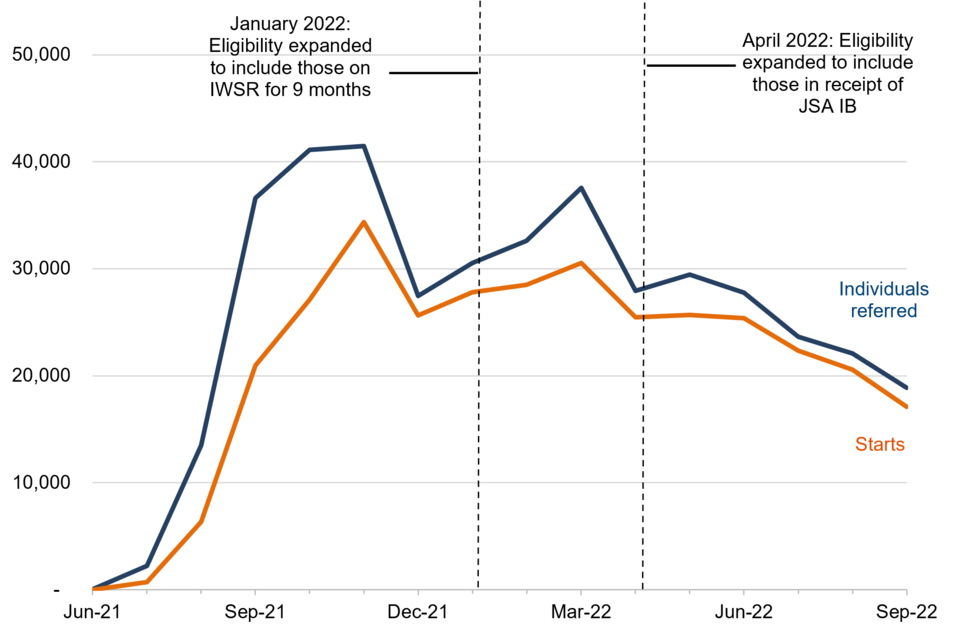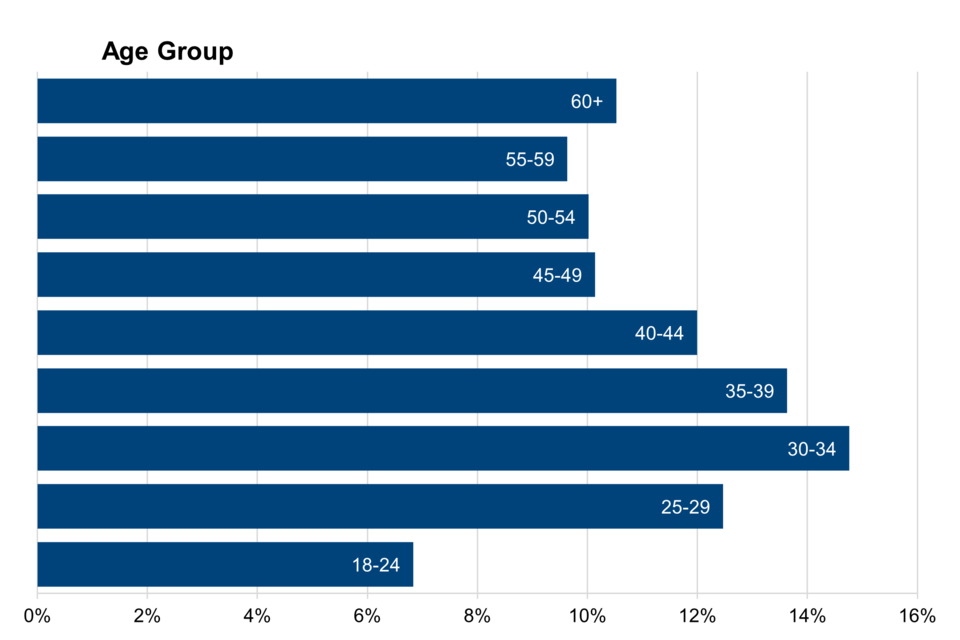Restart Scheme: DWP Performance Analysis

A report by DWP has been published (15 December) on the performance of the Restart Scheme.
At the Spending Review on 25 November 2020, HM Treasury confirmed a ‘new 3-year long £2.9 billion Restart programme’ as part of the ‘Plan for Jobs’ to provide intensive and tailored support to over 1 million unemployed people to help them into sustained work. The department later reassessed the demand for the programme; it is now likely to support around 0.7 million individuals over its life, at a projected cost of around £1.7 billion.
Details of this reassessment can be found in the July 2022 Restart Scheme Accounting Officer Advice, and the December 2022 National Audit Office report on the Restart Scheme.
The statistics show that by the end of September 2022:
- 410,000 individuals had been referred to the programme since its launch, with 340,000 of these having started on the programme
- 92,000 of these participants have achieved first earnings from employment since starting on the scheme. Note that the majority of participants have received less than 12 months of support so far
- 39,000 participants have then achieved a job outcome. This is against a contractual expectation of 33,000 job outcomes by this point in the programme, representing a programme performance of 117%
- 31% of the 28,000 individuals who started on the programme by the end of September 2021 and have now received up to 12 months of support have achieved a job outcome so far, against a contractual expectation at this point of 19%. 50% of these 28,000 individuals have achieved first earnings from employment so far
- of the 340,000 individuals who have started on the scheme, 58% were recorded as male, and 42% recorded as female. 63% are aged between 25 and 49 years old, with 7% aged between 18 and 24 years old and 30% aged 50 years or over
Joining the Restart Scheme
Since June 2021, to the end of September 2022, across England and Wales, there have been a total of:
- 410,000 individuals referred (individuals can have multiple referrals but are only counted once)
- 340,000 starts on the programme
Referrals to and starts on the Restart Scheme peaked in November 2021. Referral volumes are now reducing in line with expectations
Number of individuals referred to, and starting on, the Restart Scheme each month between July 2021 and September 2022

The number of individual referrals and starts increased in the months following the programme’s launch in July 2021. Eligibility rules were changed in January 2022, and again in April 2022. The Department reassessed the demand for the Restart Scheme and revised the number of people expected to start on the programme from 1.4 million to 0.7 million over the programme life. The volume of referrals and starts each month has fallen since March 2022. This is in-line with the volume of referrals required to meet the revised start expectation.
Proportion of starts on the Restart Scheme by age group, July 2021 to September 2022

As noted in the introduction, Kickstart, a large scale programme for young people, ran alongside Restart until April 2022, therefore it is likely that the numbers of young people starting on Restart during that period are lower than they would have been in the absence of Kickstart.
First earnings from employment, job outcomes, and performance against expectation
First earnings in employment are the point at which a participant achieves their first earnings from their first employment while on the programme. This excludes both first earnings from self-employment and subsequent employments.
92,000 individuals achieved first earnings between July 2021 and September 2022.
July 2021 saw the first participant achieve first earnings from employment. As of September 2022, 92,000 participants have achieved first earnings from employment with 9,500 of these being achieved in the most recent month (September 2022). Some retrospection can occur in first earnings figures as recorded on HMRC Real Time Earnings (RTE) data, therefore, figures for recent months are likely to be a slight underestimate.
There was a decrease in first earnings from employment during the winter months of 2021. It is not yet clear whether this will be a continued seasonal effect.
Job outcomes represent sustained employment. Not all individuals that achieve first earnings will progress to meet the criteria of a job outcome.
Read the full report here.











Responses